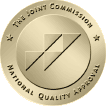Implanted Port Guidelines
The following information is intended to guide you through your post-op recovery:
Medications:
You should expect some mild discomfort after your surgery. You will likely require some acetaminophen or ibuprofen to control this. It is important to take your pain medicine prior to your pain becoming intense in severity
Bowel Care:
- To prevent constipation you should drink plenty of fluids and take a stool softener daily.
- If you have not had a bowel movement within 72 hours after your return home, you should increase your fluid intake. You may take one single dose of Milk of Magnesia, as long as you have no abdominal distention.
Incision Care:
- You will leave the hospital with a dressing over your site. The dressing can be removed 48 hours after your surgery.
- You must observe your incision daily for signs or symptoms of infection. These signs would include: increased swelling, redness or smelly wound drainage. It is normal to have some swelling and bruising around your incision.
Bathing and Showering:
- You may start showering 48 hours after your surgery. Remove your gauze dressing prior to your shower. Leave the skin tapes in place across the incision.
Driving:
- You may drive when you no longer are taking narcotic pain medications and you feel you can quickly respond to situations that will not place others in jeopardy.
Follow-up Appointments:
- You need to have your incision area evaluated 7-10 days post placement by the oncologist’s office, or at the surgeon’s if you are not scheduled to be seen at the oncologist’s office. We would like you to call and notify the surgeon’s office if you are concerned about a possible infection at the surgery site.
- It is very important that you read through the manufacture’s patient booklet regarding the implanted port. Your understanding of the do’s and don’ts in relationship to your port is critical.
- If your port needs to be accessed for either a lab draw or to receive any medications, it will need to be done by specialized nursing staff. Arrangements are usually made through the Willamette Valley Cancer Center, the Infusion Support team at Sacred Heart, or Sacred Heart’s Home Infusion team.
- At a minimum, you will need to have the port flushed monthly, which will need to be arranged with the appropriate staff as mentioned above.
Problems to Observe For:
Call the office for the following:
- Fever >101.0
- Uncontrolled pain. That is on a scale of 1-10 (10 being the worst pain imaginable) your pain is a level 7 or above.
- Nausea and / or vomiting that continue for 12-24 hours.
- Diarrhea that continues for 12-24 hours.
- Signs of a wound infection.
- Chest pain or difficulty breathing
- Your incision separates or opens up.
If you have further questions after reading this handout, the office is open from 9:00AM to 5:00PM Monday through Friday. For emergencies after office hours, the answering service will be available when you call the office number.




